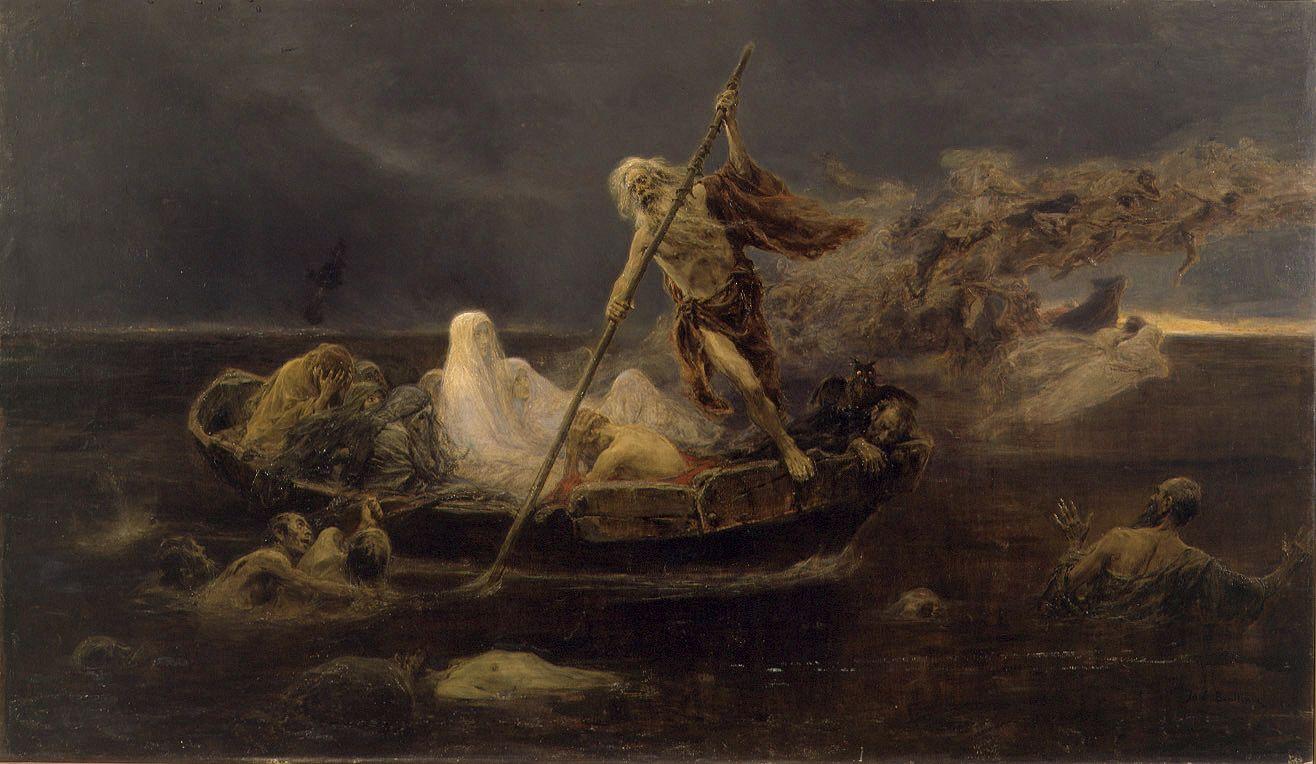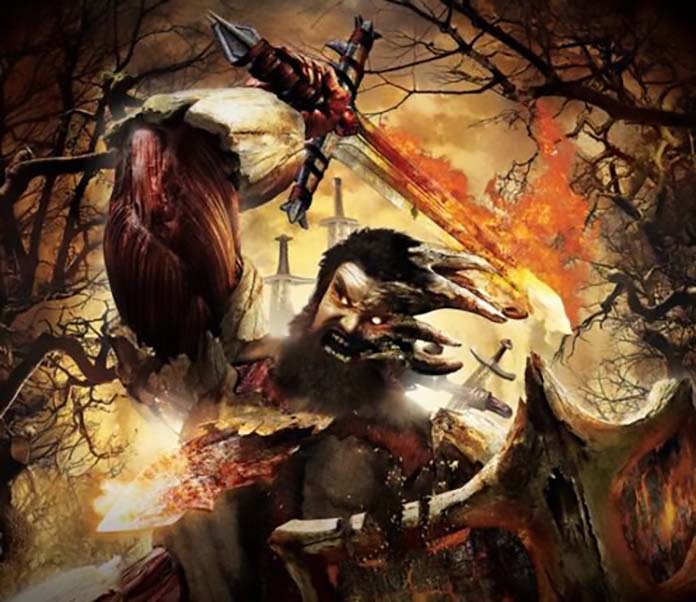Phlegyas
Phlegyas (Ancient Greek: Φλεγύας, meaning: "fiery"), was king of the Lapiths (or Phlegyans) in Greek mythology.
Phlegyas was the son of Ares and Chryse, daughter of Halmus or Dotis. He was the father of Ixion and Coronis, one of Apollo's lovers.
According to one tradition, he had no children while in Strabo's account, Phlegyas was the brother of Ixion.
Mythology
Some call Phlegyas one of the autochthonous of Greek mythology, one of the indigenous people of the land, though others call Phlegyas a son of Ares, born to Chryse daughter of Almus.
Almus, a son of Sisyphus, had settled in the land of Orchomenus where he had been welcomed by King Eteocles; and Almus had built a new town Almones. Eteocles had died without heir though, and so the whole kingdom of Orchomenus had passed to the family line of Almus, and in time, this meant Phlegyas became king.
From his father Ares, Phlegyas was said to have inherited warlike tendencies, and much of his reign was spent undertaking wars against his neighbours.
Phlegyas though, did managed to father a daughter, Coronis, by a woman who is unnamed. Coronis would become a lover of Apollo, but when she fell in love with the mortal Ischys, Apollo killed them birth. Apollo though rescued an unborn son from the womb of Coronis, and so Phlegyas was thus, a grandfather of Asclepius.

Some also call Ixion a son of Phlegyas, although other parentage for Ixion is more commonly given.
There are two versions given in Greek mythology for the manner of Phlegyas’ death. The oldest version tells of Phlegyas being killed by two brothers, Lycus and Nycteus, who were either sons of Hyrieus, or of the Spartoi Chthonius.
Having committed regicide, Lycus and Ncyteus would flee to Thebes were they were absolved of their crime by Pentheus, and eventually they usurped the throne of Thebes, ruling until they themselves were usurped.
A later myth tells of Phlegyas being tormented in Tartarus, this appears in Virgil’s Aeneid, where it is told that Phlegyas was being tortured for despising the gods.
In this version of the myth, Phlegyas was said to have been killed by the arrows of Apollo, when Phlegyas sought to destroy the temple of Apollo at Delphi, in retribution for Apollo having killed his daughter, Coronis.
Finally, in the Divine Comedy poem Inferno, Phlegyas ferries Virgil and Dante across the river Styx which is portrayed as a marsh where the wrathful and sullen lie within Hell's Circle of Anger. Phlegyas was the mythical ancestor of the Phlegyans.

Sources
Pausanias, Description of Greece, 9. 36. 1
Pseudo-Apollodorus, Bibliotheca 3. 5. 5
Pseudo-Apollodorus, Bibliotheca 3.5.5
Strabo, Geographica 9. p. 442
Homeric Hymn to Apollo, 15.3
Pindar, Pythian Odes 3.13
Pseudo-Apollodorus, Bibliotheca 2.26.4 & 3.10.3
Servius, Commentary on Virgil's Aeneid 6.618
Statius, Thebaid 1.713
"Wikipedia"













